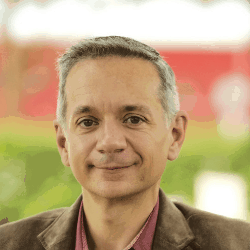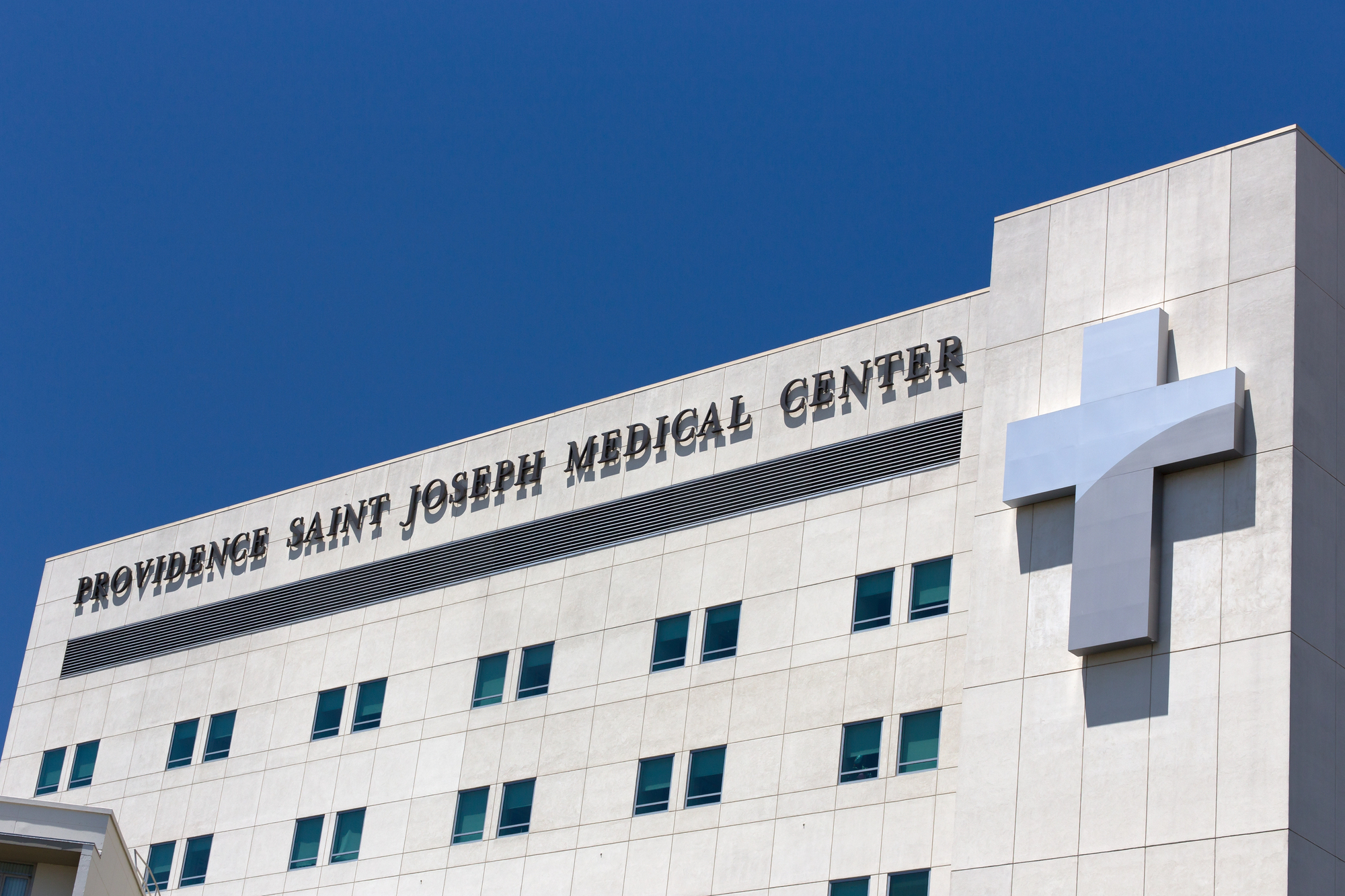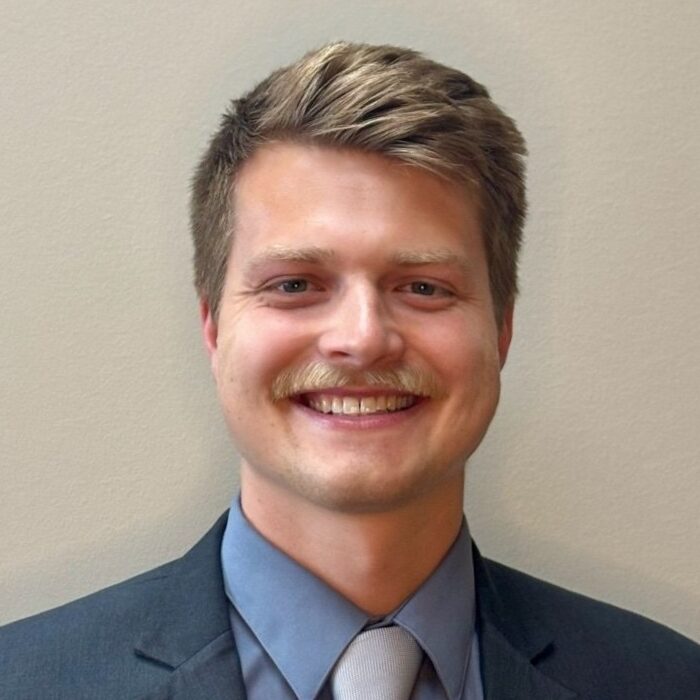Wealthtender is a trusted, independent financial directory and educational resource governed by our strict Editorial Policy, Integrity Standards, and Terms of Use. While we receive compensation from featured professionals (a natural conflict of interest), we always operate with integrity and transparency to earn your trust. Wealthtender is not a client of these providers. ➡️ Find a Local Advisor | 🎯 Find a Specialist Advisor

Do you work at Providence Health & Services? Get the resources you need and expert insights from financial professionals who specialize in helping Providence employees make the most of their compensation package and benefits.
Whether you’re a new Providence employee or you’ve moved up the ranks into a management or executive leadership role over a multi-year career, it’s important to make smart money moves with your income and employee benefits. For example:
✅ Do you know the right moves to make to get the greatest value from the Providence benefits available to you?
✅If you’re thinking about leaving Providence for another job or planning to retire from the healthcare system in a few years, are you taking the right steps today to ensure you will receive all of the compensation and benefits that you’ve earned?
Get the Most Value from Your Providence Benefits and Compensation Package
Throughout the year, Providence provides its employees and executives with updates about their benefits ranging from health insurance and health savings plans to retirement plans like a 401(k), and deferred compensation plans. While the healthcare system offers many useful resources and access to knowledgeable staff who can assist with questions, you’ll also find financial professionals not affiliated with Providence who specialize in helping Providence employees make the most of their income and benefits.
Whether you work in the Providence headquarters in Renton, Washington, another office location around the country, or remotely from home, you may have questions about your compensation package and benefits better suited for a financial professional who can offer unbiased advice and guidance.
For example, sensitive topics like discussing the steps you should take before quitting your job at Providence to work elsewhere, protecting yourself in advance of a layoff, or deciding when you should plan to retire are all conversations that may be more comfortable with a trusted financial advisor.
Should you hire a Providence specialist financial advisor or an advisor close to home?
You’ll likely find dozens of nearby financial advisors well-suited to help you reach your money goals with a personalized plan. But it may be more difficult to find a financial advisor who specializes in serving Providence employees.
Fortunately, many financial advisors offer virtual services so you can meet online no matter where you (or they) live.
This means you can choose to hire a specialist financial advisor who lives hundreds of miles away if you decide their knowledge and experience working with Providence employees is a better fit to help with your unique needs.
💡 In the Q&A below, you’ll gain insights from financial advisors who work with Providence employees to help them make smart decisions to get the most value from their compensation and benefits, reduce their money stress, and prepare for a comfortable retirement.
🙋♀️ Do you have questions not yet answered? Use the form below to submit questions anonymously and watch this article for updates with answers to your questions. You can also reach out to the financial advisors below to set up an introductory call or contact them with your questions by email.
💸 Smart Money Insights for Providence Employees & Executives
This page is organized into sections to help you quickly find the information you need and get answers to your questions:
- Q&A: Financial Planning Tips for Providence Employees & Executives
- Get Answers to Your Questions About Your Providence Benefits and Career
- Browse Related Articles
Q&A: Financial Planning Tips for Providence Employees & Executives
Answers to Providence Employee Questions with Noah Schwab, CFP®
Noah Schwab is a financial advisor based in Spokane, Washington who specializes in offering financial planning services to Providence Health & Services employees. Noah helps his clients get the most value from their Providence benefits and compensation package so they can enjoy life and feel confident about their financial future.
Q: As a financial advisor with experience helping Providence employees save for their retirement, how do you help them make the most of their employee benefits?
Noah: Providence offers a comprehensive set of benefits designed to support caregivers throughout their careers and in retirement. I assist employees in learning how to maximize these benefits in combination to create a strong financial foundation.
Providence’s 401(k) plan, managed by Fidelity, includes employee contributions with a company match and an annual discretionary contribution based on hours worked and tenure. Employee contributions are always fully vested, whereas employer contributions vest on a schedule tied to the number of years of service. Understanding this helps employees plan for their long-term savings and when they might access employer funds.
For higher-income individuals, the 457(b) deferred compensation plan offers more tax-deferred savings with immediate vesting and is an excellent supplement to retirement savings beyond the 401(k) maximum. Beyond retirement plans, I cover Health Savings Accounts, life insurance, and disability insurance.
By bringing all of these elements together in one overarching plan, Providence employees gain clarity and confidence in their financial future, knowing that they’re not leaving anything on the table.
Q: When you first speak with a Providence employee, what questions do you like to ask to better understand their unique circumstances and determine how you can best help them achieve their goals?
Noah: When I first meet with a Providence employee, I ask a few key questions to understand their financial situation and goals. I want to know about their current retirement savings, including whether they are contributing to the 401(k), 457(b), or any legacy 403(b) plans.
I ask about their student loan status to see if they are taking advantage of the student debt retirement match program. Understanding their healthcare coverage and whether they use Health Savings Accounts or Flexible Spending Accounts is also important.
I explore their career plans, such as whether they expect to stay with Providence in the long term, retire soon, or consider other career opportunities. This helps me assess vesting timelines for employer contributions, tax strategies for retirement plan withdrawals, and plans for potential changes.
Finally, I ask about their personal goals, like retirement age, plans for paying off debt, education funding, or any major life events. This helps me create a customized plan that aligns their benefits with what matters most to them.
Q: Is there a particular benefit available to Providence employees you feel isn’t as well utilized or understood by employees as it should be?
Noah: Yes, one benefit overlooked for younger employees is the Student Debt Retirement Savings Match Program. Many Providence employees are unaware that they can receive employer contributions to their 401(k) when making student loan payments, even if they are not actively contributing themselves.
Another benefit that is sometimes underused is the 457(b) Deferred Compensation Plan. It offers a great opportunity to save beyond the 401(k) limits with immediate vesting and no early withdrawal penalties. Normally, employee contributions to a 401(k) and a 403(b) are aggregated together toward the annual IRS limit, meaning you can only contribute a combined total between the two. The 457(b) is different; it has its separate contribution limit that does not count toward the 401(k) or 403(b) maximum. This essentially doubles the amount you can set aside in tax-deferred accounts each year, making it especially valuable for higher earners or anyone looking to accelerate their retirement savings.
Finally, the Health Savings Account connected to high-deductible health plans is a powerful tool that many don’t fully use for both current medical costs and long-term tax-advantaged savings.
Q: Beyond Providence employee benefits for retirement savings, are there other types of benefits offered by the healthcare network that you find valuable to discuss with your clients?
Noah: Yes, Providence offers several important benefits beyond retirement plans that I often discuss with clients. Their Health Savings Accounts are a key tool, especially for those on high-deductible health plans. HSAs provide tax advantages and can be used for current healthcare expenses or saved for the future.
The Flexible Spending Accounts help employees manage medical and dependent care costs on a tax-free basis, which can improve cash flow.
Providence also offers a lot of career development programs, including tuition assistance and fully funded degrees in select healthcare fields. This benefit can help reduce student loan debt or increase employees’ earning potential.
Additionally, I assist in navigating voluntary benefits, such as legal, disability, or pet coverage.
Q: For Providence employees thinking about leaving the healthcare network to accept a job elsewhere, what actions do you recommend they take before resigning and shortly thereafter?
Noah: Before leaving Providence, I recommend employees review their retirement accounts, especially their 401(k), 457(b), and any legacy 403(b) plans. It’s important to understand vesting schedules for employer contributions and how leaving might affect those funds.
I also suggest they check on any discretionary contributions or matching contributions they may be eligible for and confirm the timing for final contributions and distributions.
After resigning, they should decide whether to keep their retirement savings in Providence’s plans, roll them over to a new employer’s plan, or move them into an IRA. This decision depends on investment options, fees, and their long-term goals.
Finally, I advise reviewing benefits like health insurance coverage options after employment ends and understanding COBRA or alternative coverage choices.
Taking these steps early helps protect their savings and ensures a smooth transition to the next phase of their career.
Q: For Providence employees approaching retirement age, how do you recommend they prepare to make the transition from living off their salary to relying upon other sources of income?
Noah: Before leaving Providence, I recommend employees review their retirement accounts, especially their 401(k), 457(b), and any legacy 403(b) plans. It’s important to understand vesting schedules for employer contributions and how leaving might affect those funds.
I also suggest they check on any discretionary contributions or matching contributions they may be eligible for and confirm the timing for final contributions and distributions.
After resigning, they should decide whether to keep their retirement savings in Providence’s plans, roll them over to a new employer’s plan, or move them into an IRA. This decision depends on investment options, fees, whether they are implementing tax strategies such as a backdoor Roth, and their long-term goals.
Finally, I advise reviewing benefits, such as health insurance coverage options, after employment ends and understanding COBRA or alternative coverage choices.
Taking these steps early helps protect their savings and ensures a smooth transition to the next phase of their career.
Q: For Providence employees who have managed their finances on their own to this point, what would you suggest they consider to help them decide if they should begin working with a financial advisor at this stage in their lives?
Noah: The most important step is to create a retirement income plan well in advance of your last day at Providence. This means knowing exactly how much income you’ll need each month, identifying which sources will provide it, such as your 401(k), 457(b), Social Security, or pensions, and deciding when to start each one. Begin by calculating your monthly retirement income needs, then subtract your guaranteed income sources, such as Social Security and pensions. From there, determine whether your investments can sustainably cover the gap. This is also the time to explore opportunities for Roth conversions in lower-income years, which can help reduce future taxes on required minimum distributions (RMDs). Planning reduces uncertainty, lowers tax surprises, and gives you the confidence to retire on your terms.
Q: What are some of the unique financial planning challenges you commonly see among your clients who are Providence employees and how do you help them overcome these obstacles?
Noah: As you approach retirement, the stakes get higher. Decisions about when to claim Social Security, Roth conversions, RMD planning, how to draw from your Providence 401(k) or 457(b), and how to manage taxes can have long-term consequences. A Certified Financial Planner® can help you create a coordinated plan that covers income strategy, tax planning, investment allocation, and estate considerations. Even if you’ve done well managing things on your own, having a second set of experienced eyes can help you avoid costly mistakes and uncover opportunities you might not have considered.
Q: What questions do you recommend Providence employees ask financial advisors they’re considering hiring to help them decide if they’re a good fit?
Noah: When interviewing a financial advisor, it’s important to go beyond investment performance and ask questions that reveal their expertise and alignment with your needs. For Providence employees, consider asking:
- How familiar are you with the Providence 401(k), 457(b), and any legacy 403(b) plans?
- Do you incorporate tax planning into your advice, including strategies like Roth conversions and managing required minimum distributions?
- Are you a fiduciary who is legally obligated to act in my best interest?
- How are you compensated, and are there any potential conflicts of interest?
· What is your experience helping clients transition from earning a salary to drawing from retirement accounts?
Asking these questions can help you identify an advisor who understands your unique benefits and can build a plan tailored to you.
Q: Is there anything that comes up frequently in your initial meeting with Providence employees that surprises you?
Noah: One of the biggest surprises I observe is the number of Providence employees who are unaware of the full range of retirement benefits available to them, especially the 457(b) plan and its potential to be used in conjunction with the 401(k). Many don’t realize the contribution limits for the 457(b) are separate from the 401(k), effectively doubling their ability to save on a tax-advantaged basis. Another common surprise is the extent of control they have over when and how they take withdrawals in retirement, which can open up opportunities for tax planning strategies, such as Roth conversions. Often, employees also underestimate the value of reviewing old retirement accounts from previous employers, which Fidelity may not manage.
Q: For highly compensated Providence employees and executives, are there any special benefits you believe it’s important to take into consideration when preparing their financial plan?
Noah: Yes. Highly compensated Providence employees and executives often have access to benefits that can significantly enhance their retirement and tax planning strategies. The Providence 457(b) Deferred Compensation Plan is a major opportunity, since contributions are not limited by the 401(k) cap and can be withdrawn without the early withdrawal penalty once you separate from service, regardless of age. It’s also important to understand the vesting schedule for employer contributions in the 401(k) and to coordinate contribution timing if you’re nearing a vesting milestone. For executives, there may be additional nonqualified deferred compensation arrangements or supplemental retirement benefits that require careful planning to optimize payouts and manage the tax impact. Integrating these benefits with outside investments can help ensure you’re minimizing taxes and securing long-term income.
Q: Is there a particularly memorable experience or a moment you recall with a client who worked at Providence when you realized they have unique opportunities and circumstances when it comes to their financial planning needs?
Noah: Yes. I remember meeting with a Providence employee who had both the 401(k) and 457(b) plans fully funded for several years before retirement. They were also receiving a generous pension, which, when combined with their savings, created more flexibility than they had realized. We designed a plan that allows them to retire earlier than expected, draw from their 457(b) account without penalty, and convert a portion of their 401(k) to a Roth IRA during lower-income years, thereby reducing future tax burdens. It was a great reminder that Providence employees, especially those who use their benefits to the fullest, often have unique planning opportunities that can significantly accelerate financial independence and improve long-term outcomes.
Get to Know Noah Schwab Financial Advisor for Providence Employees:
View Noah’s profile page on Wealthtender or visit his website to learn more.
Are you a financial advisor who specializes in working with employees at Providence or another large company?
✅ Join Wealthtender and get featured as a specialist financial advisor based on your knowledge and experience working with employees at Providence or another large company. (Subject to availability and terms.)
✅ Sign up today and join financial advisors attracting their ideal clients on Wealthtender
✅ Or request more information by email:
🙋♀️ Have Questions About Your Providence Benefits or Career?
📰 Browse Related Articles
Are you ready to enjoy life more with less money stress?
Sign up to receive weekly insights from Wealthtender with useful money tips and fresh ideas to help you achieve your financial goals.
About the Author

Brian Thorp
Founder and CEO, Wealthtender
Brian and his wife live in Texas, enjoying the diversity of Houston and the vibrancy of Austin.
With over 25 years in the financial services industry, Brian is applying his experience and passion at Wealthtender to help more people enjoy life with less money stress.
Wealthtender is a trusted, independent financial directory and educational resource governed by our strict Editorial Policy, Integrity Standards, and Terms of Use. While we receive compensation from featured professionals (a natural conflict of interest), we always operate with integrity and transparency to earn your trust. Wealthtender is not a client of these providers. ➡️ Find a Local Advisor | 🎯 Find a Specialist Advisor





